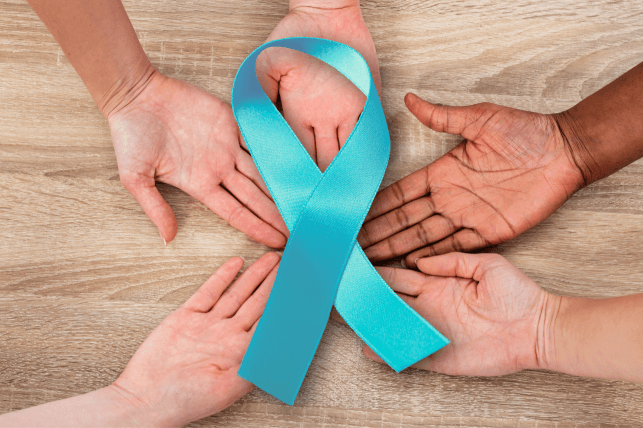Women are often told they don’t have to get a Pap test for cervical cancer if they’re over 65, but the data behind that recommendation might underestimate their cancer risk, researchers say.
According to research conducted by scientists at the Washington University School of Medicine in St. Louis, MO, the rate of death for women over the age of 65 from cervical cancer is actually higher than that of women below that age, and 25% of new cases occur among seniors.
So, what does this mean? According to the CDC, whether you’re a woman who’s 20, 50, or 70, you should still be tested for cervical cancer via Pap test. This is relatively new information regarding data among women over 65 who have not had hysterectomies and have contracted cervical cancer. This Cervical Awareness Month, care more, know more.
What’s Cervical Cancer?
Cervical cancer develops in a woman’s cervix (the entrance to the uterus from the vagina), and almost all cervical cancer cases are linked to infection with high-risk human papillomaviruses (HPV), an extremely common virus transmitted through sexual contact.
What are the symptoms?
Those who have cervical cancer may showcase symptoms such as a bloody vaginal discharge, pelvic pain, or pain during intercourse. If a woman experiences these symptoms, they must seek medical attention as soon as possible.
Women over 65 are still at risk and should consult their health care providers to learn more.
Screening tests and the HPV vaccine can help prevent cervical cancer. There are women over the age of 65 who may have never been tested simply because of lack of insurance or information or may have thought it’s no longer necessary. Unfortunately, senior women can still get cervical cancer even if they’re older than 65 years. It’s still best for senior women to talk to their health care providers if they have not been tested yet about their risk for cervical cancer.
According to the CDC, the only way to know it is safe to stop being tested after age 65 is if they’ve had several tests in a row that didn’t find cancer within the previous ten years, including at least one in the last five years.
While HPV vaccination prevents new HPV infections, it does not treat existing infections or diseases- this is why it works best when given before any exposure to HPV.
It’s possible to treat it.
When diagnosed, cervical cancer is one of the most successfully treatable forms of cancer, as long as it’s detected early and managed effectively. Older women who are still at risk for developing cervical cancer or have been diagnosed, must consult their health care providers on treatment plans.
Here’s a few reminders to support women diagnosed with cervical cancer:
Listen to what they need. Be someone who can and will listen without judgment and without forcing positivity. While in some cases it’s helpful to keep assuring the patient that she will be fine, sometimes simply listening to their feelings without dismissing them can make more impact than people think. Listen and ask what they need - don’t make assumptions so that the patient can be involved in their care.
Get information about support groups. Helping the individual talk to people coping with the same disease can help them process or manage difficult emotions.
Support their decisions. Even if the guardians or relatives are able to decide what's best for the patient, it is still the patient’s body and spirit that bears the impact of the disease.
Remember that the fight is worth it. While incredibly difficult, remember that this disease doesn’t have to define women diagnosed with it and that it’s still possible to live a meaningful life despite it. With the right care, they can have the strength they need to survive.
Care Indeed can help.
This Cervical Cancer Awareness month, caring about the causes and preventive measures can make a world of difference. Be informed, take action, and know there’s no better time to care than now. If you need help, consider working with professional caregivers. They can help support daily routines that promote good health and overall healthy living. They can make sure that clients are supported in their medical appointments. Care Indeed can help clients find the right, dependable, and trustworthy caregivers. Contact Care Indeed today to learn more about the services they can provide
Sources:
